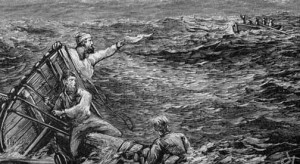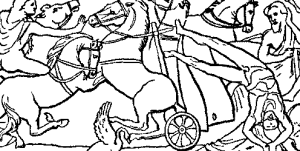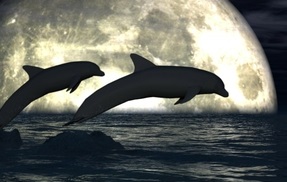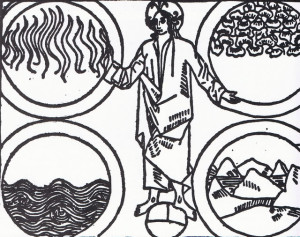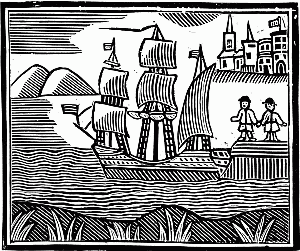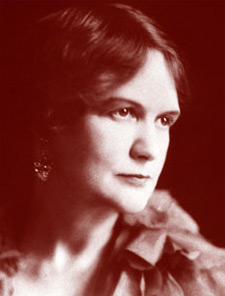 I have been lucky enough to travel to the other side of the world and visit the ‘home country’ (as it was still being called when I was little). I’d always aspired to this cultural ‘homecoming’ in an unconscious way due to a steady childhood diet of English culture, books, stories, myths, music and television. Badges, foxes and the Queen imbued the world that was valued, but not the world that I inhabited. The world I lived in had bushfires, snakes and Christmas in summers so hot you could burst your skin if you got badly sunburnt. It was confusing.
I have been lucky enough to travel to the other side of the world and visit the ‘home country’ (as it was still being called when I was little). I’d always aspired to this cultural ‘homecoming’ in an unconscious way due to a steady childhood diet of English culture, books, stories, myths, music and television. Badges, foxes and the Queen imbued the world that was valued, but not the world that I inhabited. The world I lived in had bushfires, snakes and Christmas in summers so hot you could burst your skin if you got badly sunburnt. It was confusing.
So I went to England to see the Queen, her Tower, and the Thames. I went to Bath and Stonehenge too as well as Stratford on Avon. It was gorgeous and charming. Every day I was excited to see visit and touch another sacred idea of home. The more I saw, the more I wanted to consume. Tintagel, Cornwall, the Lakes District, Portsmouth, Sussex, Sherwood Forrest all the places and names and stories, I wanted to bring them all to life inside of me, and yet … I was homesick.
I didn’t understand the food, the humour, even the greetings. Oak trees were a revelation to me, but the colours all looked too bright and even soft. It was only in England that I began to truly understand what it is to be Australian, to yearn for a big sky. As is so often the case, a writer had been there before me, and put my feelings so well into their own words.
The love of field and coppice,
Of green and shaded lanes.
Of ordered woods and gardens
Is running in your veins,
Strong love of grey-blue distance
Brown streams and soft dim skies
I know but cannot share it,
My love is otherwise.
Those are the words of Dorothea Mackellar OBE, the opening stanza of her famous poem. Like me, she was a third generation Australian, grown up with stories of the “home countries” and indeed she wrote this poem while visiting England and feeling homesick (source).
I didn’t know this stanza at the time, but I have often reflected on it since. There are in fact six stunning stanzas to this beautiful poem, which it is not currently in vogue to love, as I unashamedly do. But I also hate it, as I sometimes hate the way our country is so very hard to live with. I’m watching the footage on the television of the State of Victoria burning, and I’m feeling terror flood my body. I can hear the popping of the oils in the gums and smell the heavy smoke rushing ahead of the roaring fire front. I feel for the people fleeing their houses, with pets and livestock if they have the time, treasured photos and documents, or just their lives if the wind makes an unexpected push. Next week it could be our neighbours, or Queensland. People wonder at our humour when the farmers of the west can say, “Not much here to burn since the four years of drought.”
I can’t laugh. Grief overtakes me. Floods may come soon after, or the rains may not come for years yet, as El Nino grows in strength here and sends La Nina to Argentina.
Sometimes I hear city people say “Why do they live there if they know it is a bushfire zone?” and it is a reasonable question for all those millions of Australians who’ve always lived in suburbs or the cities. But not for those who love those ‘far horizons’ that you get in the bush. If you’ve lived in the country, then the odds are that the country lives on in you. We’ve made these nests of humans along the coasts where cyclones and storms might be the seasonal threats and when they pass through the locals shrug and say “It is just part of life, part of living here.” They would never leave either. They love the ‘jewel-sea’. Why does this love hurt? It is love, we all chose to stay – far though we may roam.
Sunburnt and happy
Australians like to travel, we all have stories to flesh out and names to bring to life in the far distant lands. We are the long-haul hard-core travellers. It is long hours to even our nearest neighbours. Nearly all of us come back here, gratefully, to this place with the contradictions that form us and the skies we miss and the beaches for endless holidays. We boast of our sunburn and deadly animals, much as we work hard to avoid them all at any cost. Sometimes I think the bush ballads are too honest now for our desire to be sophisticated and urbane. I am torn between the unendurable summers and their suffering and the longing I have when I’m gone. I envy Dorothea the clarity of her vision, and the resilience of her spirit in facing a lifetime without air-conditioning!
I’m a long way from resolving my passionate confusion over this country and even my relationship with this poem. I will grieve for our brothers and sisters in Victoria who face such hardship this week, and support them when the times comes to rebuild as we all know and trust that we will do for each other here. Because one thing is always true in Australia, this is not a land tamed by humans, it is not domesticated. Slowly, every generation, it seeps into our souls ever further and we are trained to live with it, we are the ones who must learn her long and secret ways. We are stubborn, but she is eternal. I may well spend many years trying to hear that gum-soft whisperof her love. For now we shall leave the last words to Dorothea (listen to her recite the poem).
An opal-hearted country,
A wilful, lavish land –
All you who have not loved her,
You will not understand –
Though earth holds many splendours,
Wherever I may die,
I know to what brown country
My homing thoughts will fly.
Image source.
